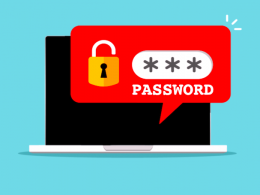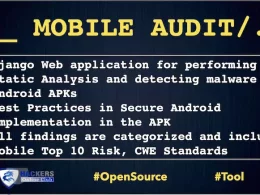The cybersecurity field is growing more complex by the day. Businesses both big and small are constantly striving to stay up-to-date with the rapidly changing landscape of data security threats.
One important step in protecting your business is conducting regular cybersecurity audits. But what is cybersecurity auditing, and why do you need it? In this article, we will define cybersecurity auditing, discuss who needs it and outline five subsets of cybersecurity auditing.
Defining Cybersecurity Auditing
An audit of a company’s security is called a cybersecurity inspection. A cybersecurity evaluation helps to identify the areas and shortcomings that must be addressed before any cyber-attack, hacking attempt, or network compromise due to a cybercriminal attack.
A cyber security audit aims to identify possible vulnerabilities in an organization’s assets and suggest methods for reducing those risks. The IT industry is one of the most rapidly-changing industries, with new technologies emerging all the time. Every company, regardless of size or sector, confronts technological change challenges. Any business must address cybersecurity concerns.
Cyber security auditors must have a deep grasp of both technical and business-oriented cybersecurity. A well-executed cyber security audit will give organizations the assurance they need in their cybersecurity strategies and tell them where they can improve.
Why Do You Need Cybersecurity Auditing?
Today’s hackers are more sophisticated and well-organized than ever before. The growing number of cyber assaults, the sophistication of the attacks, and the damage they can cause have made it essential to have effective cybersecurity defences. A security audit is a thorough examination of a system with an emphasis on uncovering security flaws and putting in place cybersecurity measures.
Cyber-attacks may have a detrimental impact on a company’s reputation, cause significant financial losses, and result in client turnover. One way businesses can protect themselves from such attacks is by conducting cyber-security audits. These audits review a company’s existing cybersecurity policies and procedures to identify any weaknesses in its approach.
Who Needs Cybersecurity Auditing?
You may be wondering if you should invest in a security system for your business. You’re not the only one with these concerns! But, what are the most important goals of a security check? How can you ensure that your company has adequate security measures in place to protect it?
It is crucial for businesses to ensure that their data is protected. A security audit can help pinpoint any potential vulnerabilities and weaknesses in your system so that they can be addressed. By conducting a security audit, you may discover that your company’s infrastructure is not as secure as you thought. Inspections of this sort will tell you whether your network is up to par for business needs, as well as ensure that your security measures are current.
You need to be aware of your firm’s security situation if you want to ensure that it is doing everything feasible to secure its data. A security audit will reveal whether you’re making all possible efforts to safeguard your data.
Cybersecurity Auditing Types
External Cybersecurity Audit
An external cyber security audit is a third-party examination of a company’s IT security systems. The assessment determines whether the company’s security precautions are effective and identifies any gaps that may be addressed. External cyber security audits are crucial tools for businesses seeking to protect their operations as well as their data from unlawful access.
Internal Cybersecurity Audit
An internal security audit of a company’s cyber infrastructure assesses its systems, policies, and procedures related to data protection. Internal Cyber Security Audits are often requested for various reasons. Internal Cyber Security Audits are often done to verify regulatory compliance. A company’s employees or its internal audit department can perform an Internal Cyber Security Audit.
Cybersecurity Auditing: 5 Subsets
#1 Network Security
Network security is the process of controlling access to data and resources shared by computers, networks, and organizations. It protects information from unauthorized modification or destruction and sometimes uses encryption to protect messages from unauthorized parties.
#2 Application Security
The objective of application security is to ensure that the software’s integrity, confidentiality, and availability are maintained. Application security focuses on detecting and minimizing all types of software risks, both internal and external. Strict security measures have always been a key priority for the project. Every application from the initial stages of development through retirement is subjected to software security testing.
#3 Data Governance
Data governance is a combination of techniques, responsibilities, standards, and indicators that ensures a firm’s information usage is effective and efficient. You need Data Governance if you’re in charge of data and information.
#4 Compliance
Regulatory compliance is a goal that organizations strive to achieve in their efforts to ensure that they are aware of and comply with applicable laws, rules, and regulations.
#5 Penetration Testing
Penetration Testing can help identify security risks that would otherwise go unnoticed. By identifying vulnerabilities such as SQL Injection and Cross-Site Scripting (XSS), organizations can avoid being exploited by malicious hackers.
Conclusion
Cybersecurity auditing is an important process that all companies should undergo to ensure the safety of their data. By conducting an audit, businesses can identify possible vulnerabilities in their system and take steps to fix them. There are many different types of cybersecurity audits, but some of the most common include external, internal, and compliance audits. Penetration testing is also a valuable tool for identifying security risks. Overall, cybersecurity auditing is a crucial part of protecting your company’s data.










